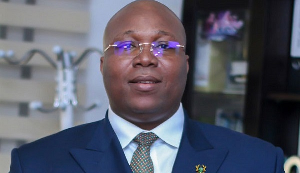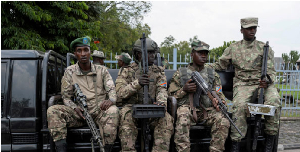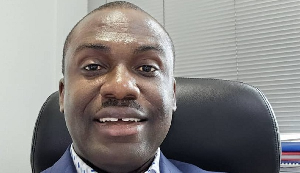The United States Agency for International Development has presented 1000 pieces of Samsung Galaxy tablets to the National Malaria Control Program through the Ghana Health Service.
The tablets which have a Ghanaian developed app, NetAPP, installed on it would be used during a nationwide Long Lasting Insecticide Nets (LLIN) Point Mass Distribution Campaign.
The campaign was launched in Adidome in the Central Tongu District of the Volta Region and expected to witness the distribution of 15.5 million insecticide nets nationwide in exception of the Upper West Region.
The tablets would be used in the registration and distribution processes to enhance data collection, net allocation, analysis and monitoring of data for officials in charge of the campaign.
Presenting the gadgets, the Deputy Chief of Mission at the US Embassy in Ghana, Ms Melinda Tabler-Stone, expressed optimism the gadgets would be put to good use to achieve the desired results.
She lamented the replicate effects of malaria on productivity and economic growth, and appealed to persons who would receive the LLIN to cultivate the net culture to enhance eliminate malaria from the Sub-Sahara region.
“In a study by ‘Roll Back Malaria’, it was estimated that eliminating malaria globally could produce a net economic benefit of almost $270,000 Billion between 2016 and 2030. Malaria is an intolerable burden that hinders economic prosperity”, Ms Tabler-Stone stated.
The Health Minister, Kwaku Manu Agyemang, was appreciative of the support of all donor partners, especially USAID to the malaria campaign aimed at preventing, treating and ultimately eliminating malaria from Ghana.
He indicated that the malaria campaign has yielded good results where malaria morbidity among children under 5 reduced to 21% in 2016 and general mortality also dropped from 2,000 in 2015 to 600 in 2017.
He, however, expressed uncertainty of the continuous support of foreign donor partners to the malaria campaign since Ghana has attained a middle class status.
“While international funding to fight malaria is decreasing and we are uncertain of future funding support, a serious obligation remain ahead of us to save the unfortunate people who die of this preventable and treatable disease”, this was contained in a speech read on his behalf.
Regional News of Thursday, 5 April 2018
Source: www.ghanaweb.com













